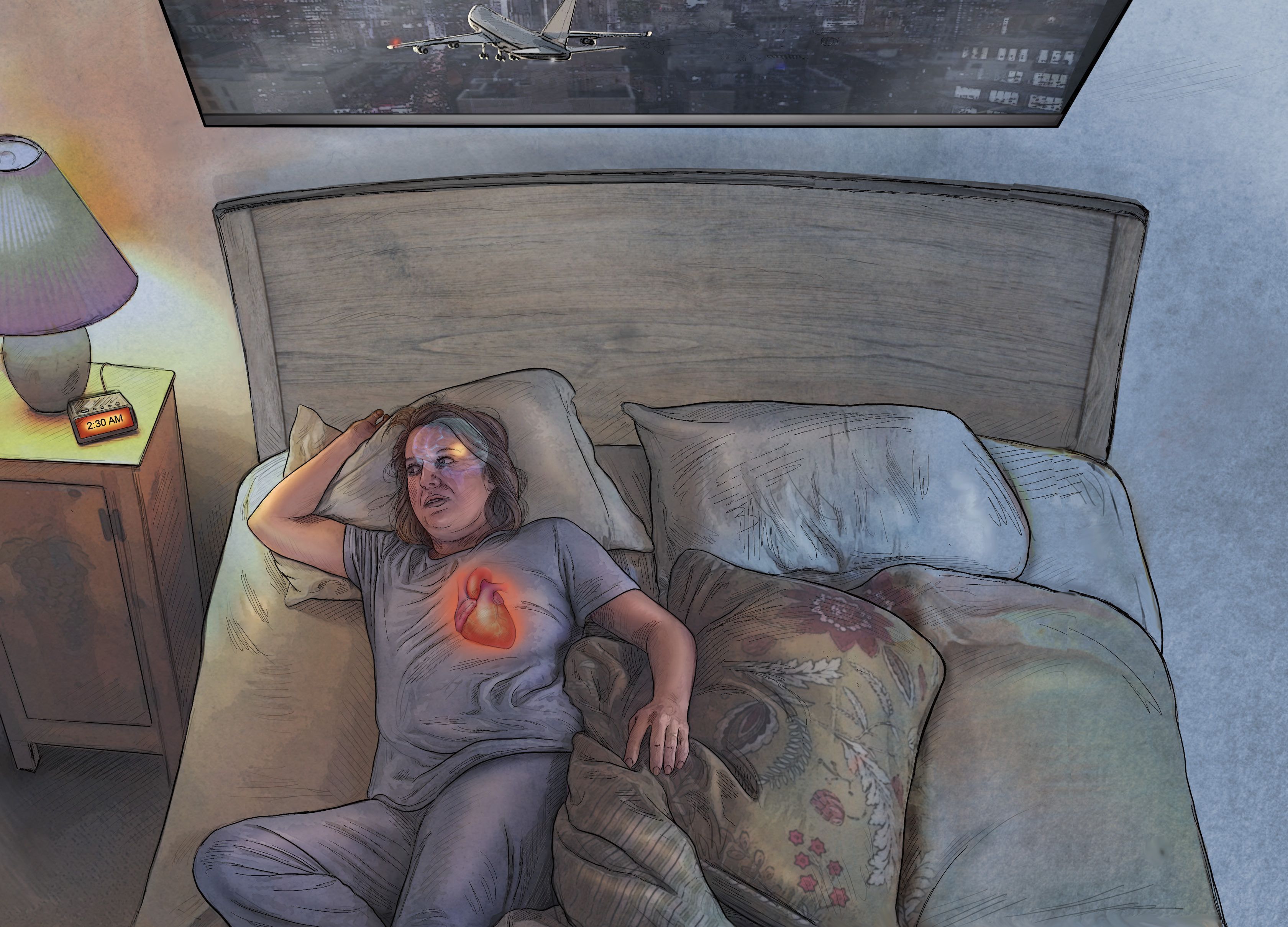
Epidemiological data have long linked exposure to noise such as aircraft, railway, or traffic sounds to increased risks of cardiovascular disease. And in recent years, experimental work has been revealing the biological mechanisms underlying that link. Specifically, researchers are finding that noise activates the brain’s limbic system, which plays a role in emotional regulation, the release of stress hormones into the blood, and controlling of the sympathetic nervous system. These stress responses can lead to cerebral and vascular inflammation, oxidative stress, and altered gene expression, sometimes culminating in endothelial dysfunction and cardiovascular disease.
 © LAURIE O’KEEFE | Nighttime noise can disrupt sleep and cause cognitive and emotional responses via activation of the amygdala. |
Noise stress reactions

Disrupted sleep can also activate the autonomic nervous system and the endocrine system, leading to increases in circulating levels of stress hormones such as cortisone.
Endothelial dysfunction

Such chronic stress can cause high cholesterol, high blood glucose, high blood pressure, increased blood viscosity, and the activation of blood coagulation—all cardiovascular risk factors. Stress can also increase the permeability of the endothelium to inflammatory cells such as macrophages, leading to endothelial dysfunction.
Plaque buildup

If stress persists, a buildup of cholesterol and immune cells below the endothelium leads to plaque formation and eventually smooth muscle cells and lipids accumulate.
Noise-triggered plaque rupture

Acute noise stress can cause a physical disruption of the plaque, leading to cardiovascular disease, including acute and chronic coronary syndrome, stroke, arrhythmia, arterial hypertension, and heart attack, plus mental health disorders such as depression and anxiety.
Read the full story.



